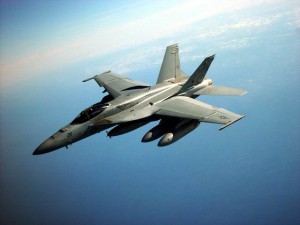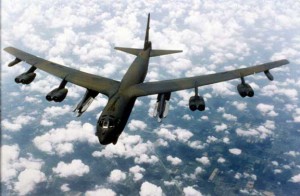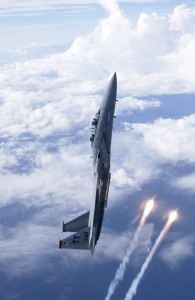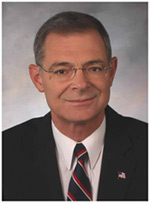Aerodynamics For Engineers
 The Aerodynamics For Engineers (AFE) short course provides a comprehensive training experience in fundamental aerodynamics applicable to flight ranging from subsonic to hypersonic speeds. The course arms participants with a sound understanding of a broad spectrum of fundamental aerodynamics concepts and phenomena.
The Aerodynamics For Engineers (AFE) short course provides a comprehensive training experience in fundamental aerodynamics applicable to flight ranging from subsonic to hypersonic speeds. The course arms participants with a sound understanding of a broad spectrum of fundamental aerodynamics concepts and phenomena.
Subject matter ranges from low-speed, incompressible flows to high-speed flows where compressibility effects such as shock waves are important. Participants will learn how aerodynamic forces and moments are generated for any flight vehicle at any speed and any aerodynamic attitude.
 Course material explores the viscous boundary layer, turbulence, and flow separation and how these phenomena critically affect airfoil lift and drag characteristics. Participants will come to understand the significance of Mach number, Reynolds number, and the principle of Dynamic Similarity and their key influences in the field of wind tunnel testing.
Course material explores the viscous boundary layer, turbulence, and flow separation and how these phenomena critically affect airfoil lift and drag characteristics. Participants will come to understand the significance of Mach number, Reynolds number, and the principle of Dynamic Similarity and their key influences in the field of wind tunnel testing.
Participants will learn the basics of aerodynamic heating and why thermal effects drive the design of high-speed flight vehicles such as aircraft, missiles and entry vehicles. They will gain a basic knowledge of aircraft and missile airframe aerodynamic characteristics, stability and control and flight performance. Finally, they will also acquire simple equational tools to make first-order, real-world aero calculations.
Save
- The Atmosphere
- Fluid Properties
- Aero Forces and Moments
- Incompressible Flow
- The Boundary Layer
- Flow Separation
- Airfoils and Wings
- Aerodynamic Lift
- Aerodynamic Drag
- Wind Tunnels
- Compressible Flow
- Conservation Laws
- Mach Number
- Shock Waves
- Expansion Waves
- Airbreathing Propulsion
- Aerodynamic Heating
- Reynolds Number
- Planetary Entry
- Knudsen Number
- Hydrostatic Equation
- Historical Flight Programs
 The Aerodynamics For Engineers (AFE) short course is an intensive 4-day training program that provides a maximum training experience to aerospace professionals with minimum time away from work.
The Aerodynamics For Engineers (AFE) short course is an intensive 4-day training program that provides a maximum training experience to aerospace professionals with minimum time away from work.
Aerodynamics For Engineers Module Overview
- Basic Aerodynamics Principles: Gases, liquids, pressure, temperature, density, specific volume, Perfect Gas Law, atmospheric properties.
- Incompressible Flow: Steady flow, conservation of mass, velocity, area, conservation of momentum, airspeed measurement.
- Viscous Flow: Fluid viscosity, shear stress, boundary layer, laminar flow, turbulent flow, Reynolds number, flow separation.
- Airfoils and Wings: Lift, drag, pitching moment, sectional characteristics, lift curve slope, stall, aspect ratio, wing vortex, induced drag.
- Thermodynamics Principles: Internal energy, entropy, enthalpy, specific heats, conservation of energy, isentropic flow.
- Compressible Flow: Compressible flow regimes, Mach number, speed of sound, shock waves, converging-diverging ducts.
- Supersonic Aerodynamics: Compressibility, Critical Mach number, drag divergence, wave drag, Mach angle, wing sweep effects.
- Hypersonic Aerodynamics: Newtonian theory, Mach number independence, viscous interaction, Knudsen number, hypersonic aircraft.
- Air-Breathing Propulsion: Jet propulsion principle, military thrust, afterburner thrust, turbojet, turbofan, ramjet, scramjet engines.
- Atmospheric Entry: Equations of motion, altitude-velocity map, entry corridor, ballistic entry, gliding entry, aerodynamic heating.
Save
This course is best suited for individuals with no prior exposure to aerodynamics as well as anyone needing a refresher in basic aerodynamics.
General Requirements
- Algebra
- 1st Year College Calculus
- 1st Year College Physics
Suggested WEA Preparatory Courses
- There are no additional educational requirements for this course.

J. Terry White terry@whiteeagleaerospace.com Curriculum Vitae
J. Terry White is the founder, senior advisor and former president of White Eagle Aerospace. His 50 years of professional aerospace experience includes the NASA Space Shuttle Program, NASA X-43A Flight Research Project, and the United States Navy STANDARD Missile Program. During his far-ranging professional career, Terry has served on the engineering technical staff of Rockwell International, General Dynamics Corporation, Hughes Missile Systems Company, NASA Dryden Flight Research Center and Raytheon Missile Systems. In addition, he has served as an engineering consultant to numerous corporate and private aerospace enterprises.
Terry is a subject matter technical expert in the disciplines of aerodynamics, 6-DOF aerodynamics models, aerothermodynamics, hypersonics, flight simulation, and flight testing.
Terry previously served as manager of the Aerodynamics Department in the Guidance, Navigation, and Control Center at Raytheon Missile Systems in Tucson, Arizona. In this capacity, he was responsible for all aerodynamics work performed at the world’s largest tactical missile producer. He concluded his career with Raytheon in 2010 as a Senior Engineering Fellow in Aerodynamics.
Terry has authored more than 180 technical papers on a wide variety of aero-science and aerospace subjects. His teaching credentials include 15 years as an instructor in the Aerospace Engineering Department of the California State Polytechnic University, Pomona, 10 years as an instructor in the professional development program at Raytheon and 17 years developing and teaching technical courses at White Eagle Aerospace. Those who have taken Terry’s courses say that he brings an extensive technical knowledge and uncommon instructional skill to the training environment.
Terry is particularly well-known for his inspiring aerospace history presentations, which are intense, technically relevant reviews of significant events in United States aerospace history. He has lectured extensively on aerospace history topics at the USAF Test Pilot School, the Society of Experimental Test Pilots, the National Aeronautics and Space Administration, the American Institute of Aeronautics and Astronautics, academia and industry.
Terry and his wife Phyllis reside in Oro Valley, Arizona. They are the happy parents of five remarkable children and the grateful grandparents of nine delightful grandchildren.
We provide on-site short courses for businesses and government organizations. Individuals who wish to attend a course should contact us here.
